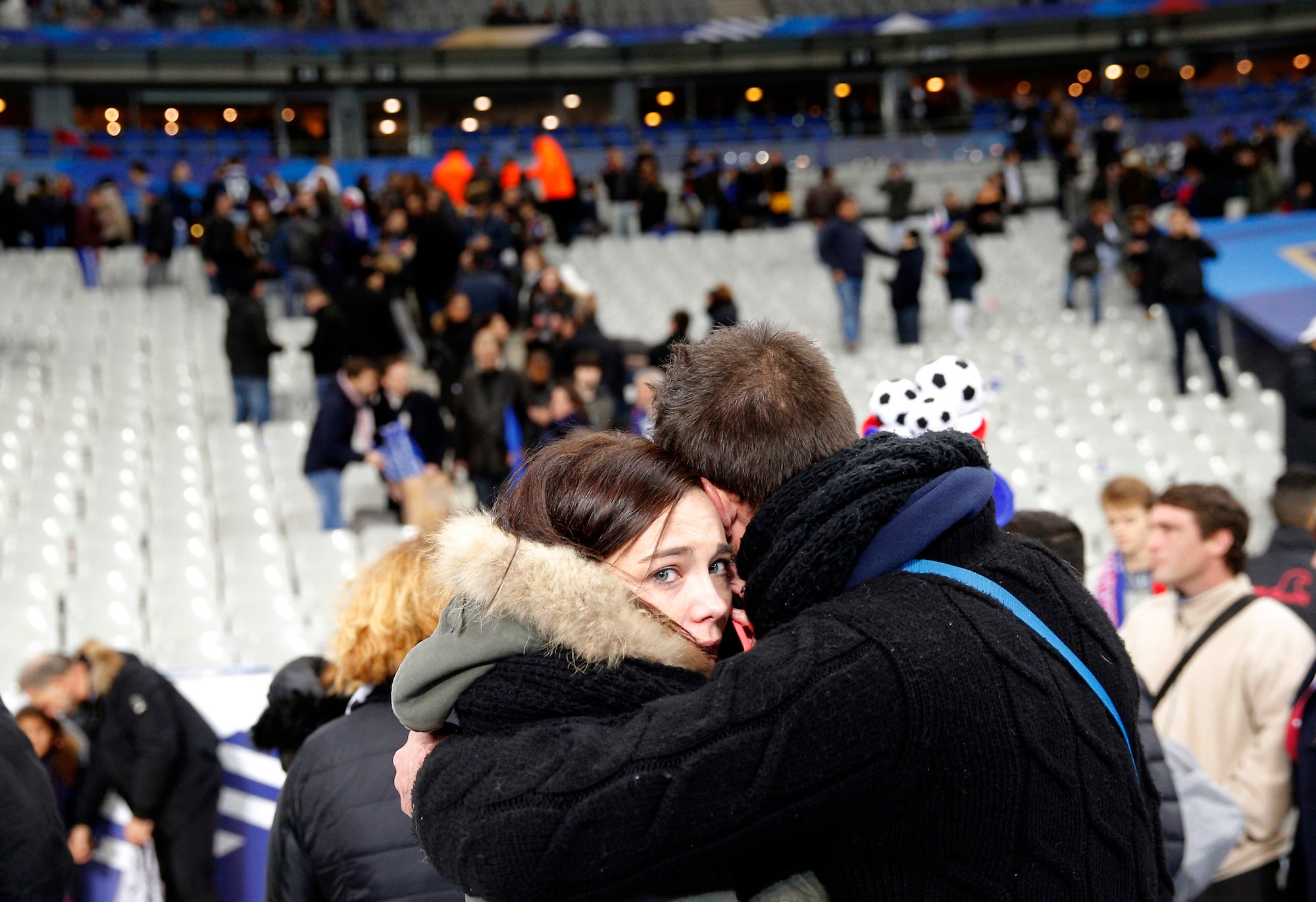Paris attack: Co-ordinated nature of atrocity 'shows the fragility of free societies'
'They are practising pure terror - I am afraid we may face something like this in the UK'

Five years ago, Osama bin Laden declared that the flames of jihad should be spread across Europe using the blueprint of the devastating Mumbai massacre.
The founder of al-Qaeda was executed by US forces before he could see his lethal wish come true. Now Paris has experienced what has been the recurring nightmare for security officials ever since the highly successful attack in India seven years ago: a trained and ruthless squad of killers, targeting defenceless civilians in multiple locations in a crowded urban setting.
French security officials believe that the attackers who carried out the atrocities on 13 November were very likely to have been three teams from one unit trained in Syria and sent to carry out a specific mission. They believe its members arrived in France separately, from different directions, and that extremists based in the city provided logistical support.
Syrian and Egyptian passports were found near the scenes of the attacks: the holder of one of the Syrian passports had come into Europe via the Greek island of Leros, 20 miles off the Turkish coast, said Nikos Toskas, the Greek deputy public order minister. One of the killers has been identified as a French national known to have travelled to Syria. Meanwhile it emerged that a 51-year-old from Montenegro was recently arrested in Germany with a car packed with guns and explosives; examination of his mobile phone and GPS device showed he was apparently headed for Paris. And arrests have been carried out in Brussels, linked to the Paris assaults.
On 14 November, Isis released a video showing how it had prepared for its war on France. A fighter identified as Abu Salman, a French national, boasted: “There are weapons and cars available and targets ready to be hit. Even poison is available. Terrorise them and do not allow them to sleep due to fear and horror.”
A senior French security officer said: “Yes, analogies will be drawn with Mumbai. Their plan was to overwhelm us by hitting a number of sites simultaneously. We have trained for this ... there are contingency plans and we used them.
“But this shows how difficult it becomes when something like this happens in a free society. What are we supposed to do? Have massive security at every concert and at every football match? What about people’s civil rights? We may see other attacks, elsewhere, like this one.”
This view was backed by security experts abroad. “The attacks show a level of sophistication we really haven’t seen in an urban area since the attack on Mumbai,” said Michael Leiter, the former director of the National Counter-terrorism Center in America. “This will be a game-changer for how the West looks at the threat.”
Former US Air Force General Michael Hayden, who has also headed the National Security Agency, added: “This shows the fragility of free societies. It shows the great danger international terrorism presents to all of us.”
General Sir Peter Wall, the former head of the British Army, said: “With or without giving it the Mumbai label, what we have seen is a very effective form of terrorism with simultaneous attacks which makes command and control very difficult. They are practising pure terror. I am afraid we may face something like this in the UK.”
More than one attempt to replicate the Mumbai massacre has been made in Britain – so far, all frustrated – and the director-general of MI5, Andrew Parker, warned earlier this year that Islamist groups based in Syria were rekindling efforts to do so.
President François Hollande said the Paris gunmen and bombers, who struck in six locations, had been trained abroad. The 12 Mumbai attackers, who killed 164 people in 11 locations, were trained in Pakistan.
Following the attack that killed 17 in the offices of the Charlie Hebdo magazine and elsewhere in Paris 10 months ago, Manuel Valls, then interior minister and now Prime Minister, acknowledged “clear failings” and “cracks” in the security apparatus, and said urgent action had to be taken.
But in August only prompt action by passengers, including US Marines on holiday, stopped a gunman carrying out multiple killings on the Brussels-to-Paris train. In April an al-Qaeda adherent killed a woman in the Paris outskirts. In June a man with Islamist affiliations beheaded his boss. In July four men, including a former soldier, were arrested for allegedly plotting to bomb a military base in the name of Isis.
French security officials maintain they simply do not have the resources to keep track of the rising numbers of French Muslims travelling to and from jihad in Syria. They point out that there are almost 1,600 people with links to Syrian Islamist networks and a further 7,000 thought to be planning to go to Syria. According to a report by the French Senate in April, 1,430 of the 3,000 jihadists who have travelled from Europe to Syria came from France.
Join our commenting forum
Join thought-provoking conversations, follow other Independent readers and see their replies
Comments
Bookmark popover
Removed from bookmarks